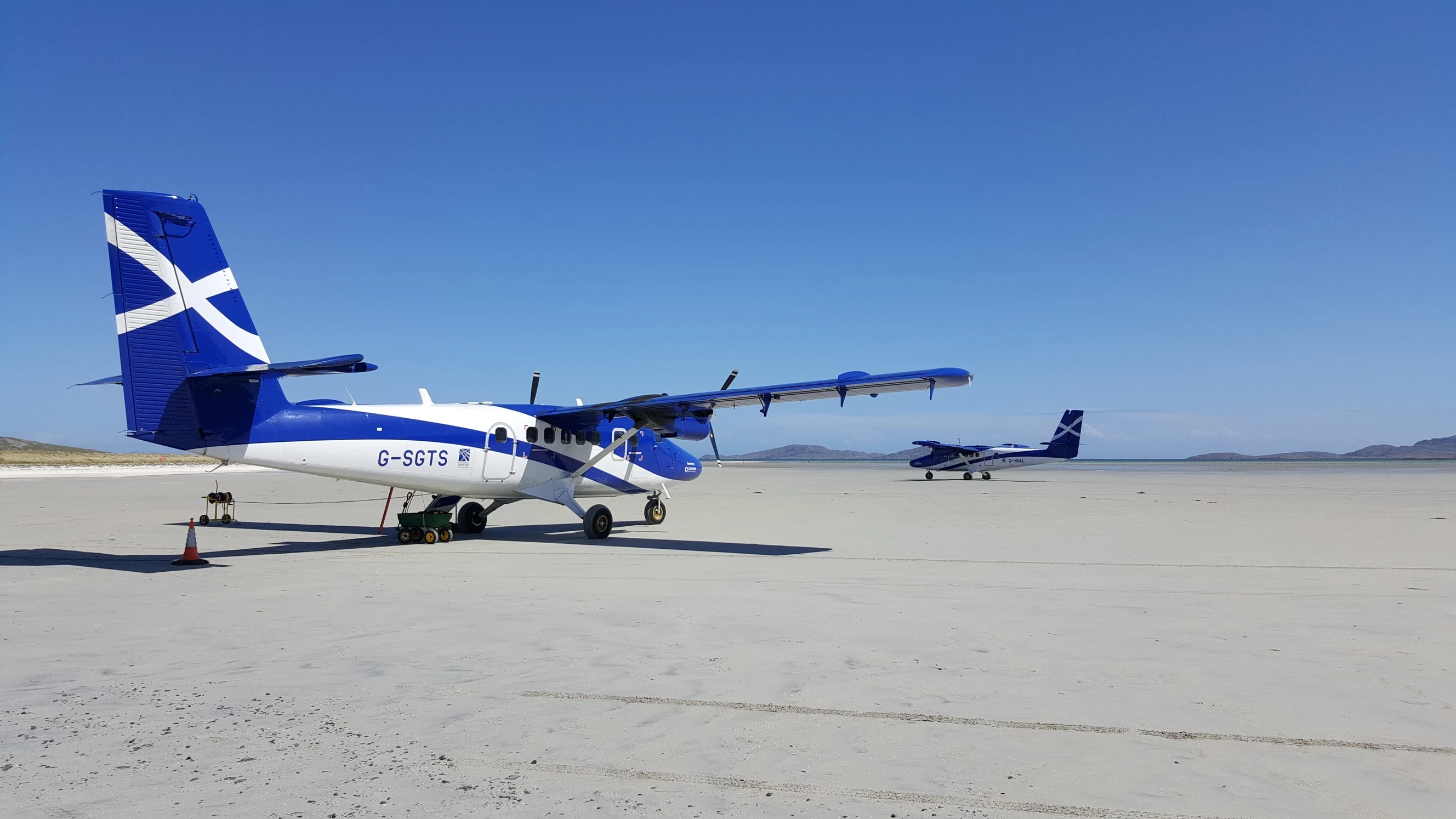
Sustainable aviation could create 2,500 Scottish Highlands & Islands jobs, according to Government report
Research from a Scottish Government sponsored project bringing together UK aerospace heavyweights shows the potential to create up to 2,500 jobs and improve mobility across the Scottish Highlands and Islands.
Project Eilean, part of the Government’s drive to become net zero by 2045, saw independent digital engineering research company, the Centre for Modelling & Simulation (CFMS), collaborate with Rolls-Royce, Loganair, University of Strathclyde and Scottish Enterprise.
A team of digital engineering experts from CFMS researched the viability of a low emissions aircraft capable of short haul operations across Scotland’s furthest-flung regions.
By modelling a new concept that could be applied to existing aircraft, specifically the 19-seater Loganair DHC Twin Otter 400 Series, CFMS used digital analysis to assess alternative fuel sources, including electric battery, hydrogen electric, and hybrid fuel (diesel and electric).
The report comes as the Scottish Government announced three pilot schemes to help Scotland’s tourist hotspots pave the way to net zero; and follows the publication of the second Strategic Transports Projects Review (STPR2), which highlighted the need to make transport in Scotland more sustainable.
Ian Risk, chief technology officer at CFMS, commented: “Project Eilean shows the possibilities for sustainable aviation in Scotland, and the significant future impact this could have on the aerospace industry. There is the potential to create new routes, boost tourism, improve connectivity and create new jobs, whilst paving the way to achieving net zero by 2045.
“Enhancing connectivity links is vital for communities cut off from other modes of transport and, through digital engineering, we have identified potential routes that not only optimise sustainability but have the potential to create thousands of jobs; a truly economic proposition for Scotland.”
Andy Smith, head of sustainability at Loganair, added: “This report confirms the significant opportunity, both at an industrial and a social level to utilise the wealth of aerospace expertise and capability in Scotland to develop a low carbon airliner suitable for the Highlands and Islands.
“Loganair supports the conclusions of this report and looks forward to working with the Scottish Government and other stakeholders to plan the first zero carbon commercial flight within Scotland.”
Looking to promote your product/service to SME businesses in your region? Find out how Bdaily can help →
Enjoy the read? Get Bdaily delivered.
Sign up to receive our popular morning National email for free.








 Raising the bar to boost North East growth
Raising the bar to boost North East growth
 Navigating the messy middle of business growth
Navigating the messy middle of business growth
 We must make it easier to hire young people
We must make it easier to hire young people
 Why community-based care is key to NHS' future
Why community-based care is key to NHS' future
 Culture, confidence and creativity in the North East
Culture, confidence and creativity in the North East
 Putting in the groundwork to boost skills
Putting in the groundwork to boost skills
 £100,000 milestone drives forward STEM work
£100,000 milestone drives forward STEM work
 Restoring confidence for the economic road ahead
Restoring confidence for the economic road ahead
 Ready to scale? Buy-and-build offers opportunity
Ready to scale? Buy-and-build offers opportunity
 When will our regional economy grow?
When will our regional economy grow?
 Creating a thriving North East construction sector
Creating a thriving North East construction sector
 Why investors are still backing the North East
Why investors are still backing the North East